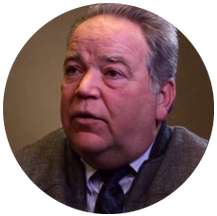She worried when he went to war shortly after they married. Other military families supported her. Rare and precious video chats or even phone calls when he was somewhere with an internet connection buoyed her hopes. Still, whenever the news feeds had a story about a conflict where she thought he might be, her heart rose in her throat.
He returned home safely and appeared to be readjusting quickly to civilian life. The skills he learned in the service helped him get a good job. Their bad days seemed to be behind them.
Or so she thought.
He began hanging out occasionally with his military friends to “relieve his stress,” he told her. Looking back, she realized that phrase was a red flag. A few harmless poker games progressed to buying lottery tickets and visiting casinos with his buddies. He always told her when he was going and how luck treated him.
But after a few months his mood turned dark. He had trouble sleeping. He stopped telling her about his gambling. He snuck off to gamble during the day and missed work so much that he lost his job. By the time she began looking for help, they were thousands of dollars in debt and emotionally burned out.
On Memorial Day each May, we remember those who gave all in service to the country. Let’s not forget that many who have served and sacrificed for our country are still alive and struggle with post-traumatic disorders, which can lead to gambling and other addictions.
The Disabled American Veterans organization (DAV) surveyed veterans and reported that up to one third of veterans in treatment for a substance abuse problem also have a significant gambling problem. Veterans in treatment for Post-Traumatic Stress Disorder, known as PTSD, may be as much as 60 times more likely to have a gambling problem than similarly aged members of the general population. And rates of depression among veterans with pathological gambling problems have been shown to be as high as 76%. Suicide is extremely common, with 40% of veterans seeking treatment for gambling reporting suicide attempts. Here’s the complete survey: http://www.ncpgambling.org/files/public/Military/DAV_Gambling.pdf
Maryhaven, one of only six recognized gambling addiction treatment centers in Ohio, can help veterans and their families deal with the array of mental health disorders, including gambling addiction.
Veterans can access gambling treatment through the Veterans Administration, but some of the veterans I’ve worked with won’t use the VA for a variety of reasons, such as the fear that their need for treatment will be recorded in their military records.
Maryhaven offers needed services and connects veterans to trained counselors who use information and treatment to help veterans process events in a more constructive way and to accept responsibility for their own behaviors. This typically means “re-forming” thinking errors and beliefs that so easily distort their perspective of every day events and relationships.
In addition to treating gamblers, the experts at Maryhaven also assist family members coping with anger, anxiety and financial issues — even if their loved one isn’t in treatment.
So, no matter the special day or issue, Maryhaven can help you or a loved one dealing with gambling addiction or another mental health or substance abuse disorder. And we’ll help you in a comprehensive, coordinated and caring way. Give us a call and let us be your holistic behavioral and addiction health specialists.
Call 614-324-5425 or contact us confidentially online today.

